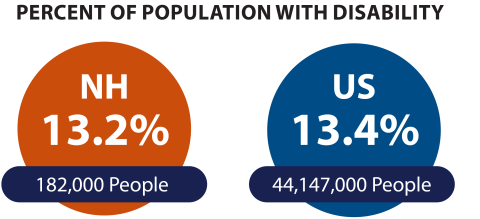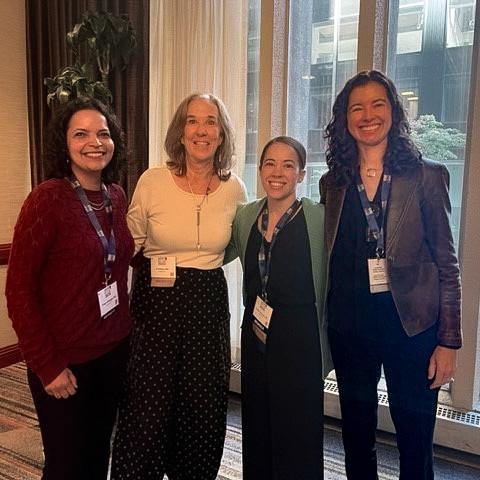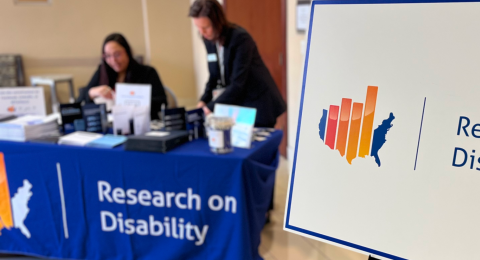Photo Credit: Katherine Martel | Institute on Disability
Research isn’t just about data—it’s about impact. Through our research, we aim to inspire informed discussions, drive better policies and create stronger, more inclusive communities. The numbers tell a story, but the impact lies in how we respond to them. We believe that research should challenge assumptions, push boundaries, and drive measurable change. That’s why we collaborate with communities, amplify diverse voices, and ensure that every study we conduct moves us closer to a more inclusive and equitable future.
NH Disability Statistics Report

Every year, New Hampshire Disability Statistics sheds light on the experiences of people with disabilities in our state. Published by the IOD’s Center for Research on Disability, this report isn't just about numbers—it’s about understanding the lives behind them.
So, what does the data reveal about New Hampshire this year? Let’s break it down:
- 1 in 8 New Hampshire residents has a disability: Disability touches all corners of our communities.
- Lower poverty rates: Compared to national averages, New Hampshire residents with disabilities are less likely to live in poverty.
- Higher education rates: New Hampshire’s residents with disabilities are more likely to have a college education than their peers nationwide.
- Greater employment numbers: Statewide employment rates for people with disabilities outpace the U.S. average.
- Barriers to health insurance access: People with disabilities in New Hampshire are less likely to have private health insurance compared to New Hampshire residents without disabilities.
This publication analyzes seven key areas — prevalence, disability types, poverty, education, employment and health insurance (both private and public) — to paint a detailed picture of disability in our state and across the nation.
By bringing these statistics to the forefront, we aim to inspire informed discussions, drive better policies and create stronger, more inclusive communities. The numbers tell a story, but the impact lies in how we respond to them.
Explore the latest report to learn more about how New Hampshire continues to lead the way—and where we have room to grow.
Advancing Psychiatric Care for Young People with IDD Through Evidence-Based Research

(L-R): Emaya Anbalagan, Jill Hinton, Jen McLaren, Katy Stratigos at the American Academy of Child & Adolescent Psychiatry 2023 annual meeting in New York City.
Children and adolescents with intellectual and/or developmental disabilities (IDD) are at a heightened risk for psychiatric disorders, yet their mental health needs often go unmet due to gaps in knowledge and outdated care practices.
The National Center for START Services® (NCSS) addresses this critical issue through rigorous research and dissemination of best practices. At the 70th Annual Meeting of the American Academy of Child & Adolescent Psychiatry (AACAP) in New York City (October 23-28, 2023), NCSS experts contributed their research-based expertise to Institute 7: Excellence in Care for Individuals with Intellectual Developmental Disorder: Relevant Updates on Best Practices.
This prestigious event, attended by over 4,000 psychiatrists and allied professionals worldwide, provided an opportunity to share the latest advancements in mental health care for young people with IDD.
